
The berries of the Sambucus tree, elderberries are small, dark, tart berries. This simple fruit has been revered for its contributions to everyday health and impact on the immune system, but how exactly does it help your body out? Read on for what you should know about elderberries, including seven science-backed benefits you can get from them.
Advertisement
01
Boosts immune system
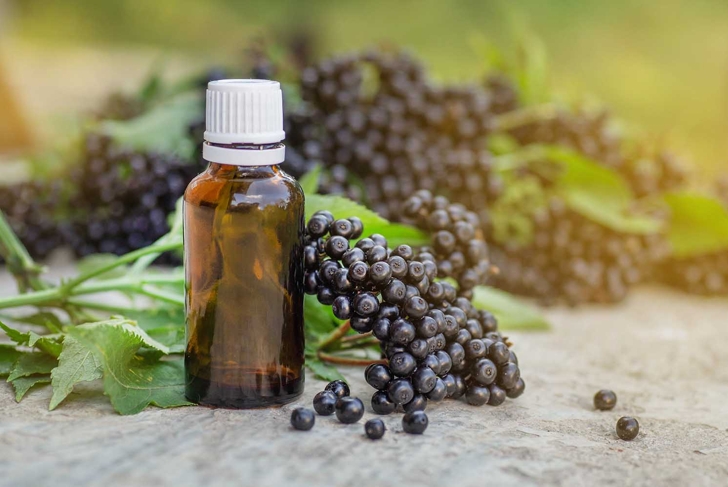
The vitamins contained in elderberries, paired with the fruit’s antioxidant potential can help support your immune system. Vitamin C, which is contained in the berries, works to helps activate infection-fighting white blood cells, while antioxidants like quercetin and anthocyanins in elderberries support the immune system through their anti-inflammatory and antiviral properties. If you’re looking to load your larders with other immune-boosting foods like the elderberry, check out these superfoods for immunity.
02
Eases cold and flu symptoms
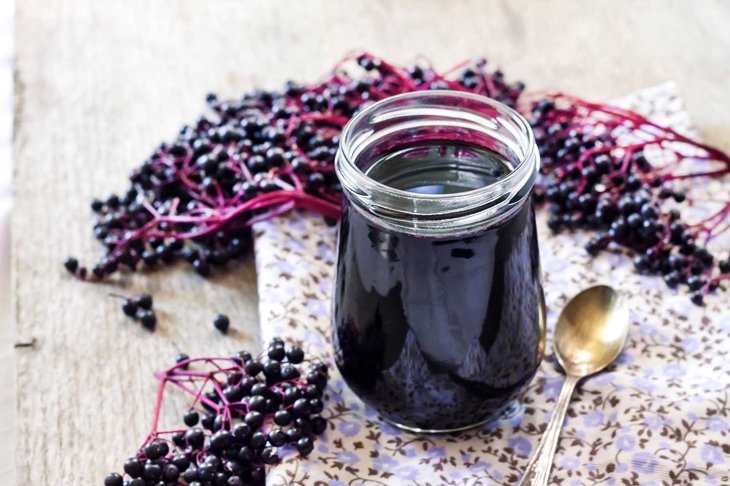
While there’s no cure for the common cold or flu, elderberries have been shown to help reduce the severity and duration of symptoms. Research links the antiviral effect of elderberries to being beneficial against the flu virus, providing a mild inhibitory effect at the early stages of the influenza virus and an even stronger effect during the post-infection phase. Taking elderberry lozenges within the first 24 hours of symptoms has been linked to reduced flu symptoms.
03
Reduces inflammation
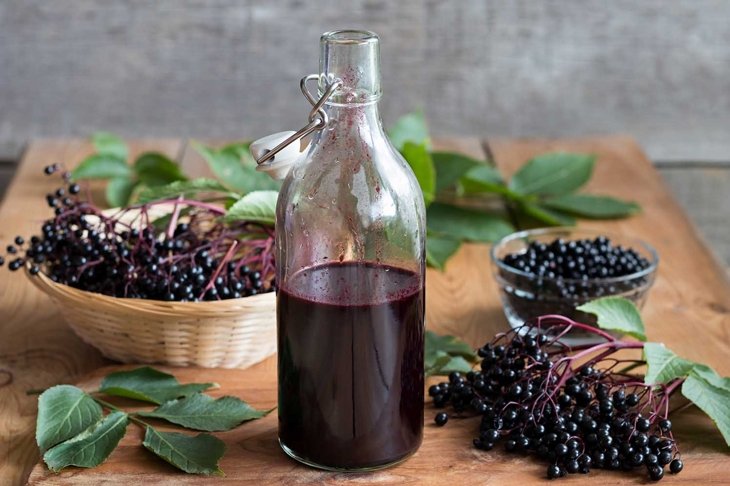
Research has found that elderberries offer anti-inflammatory benefits and can help reduce swelling. This is largely attributed to elderberry’s flavonoid content. Chronic inflammation has been linked to a wide range of diseases, including cancer, Alzheimer’s, diabetes, heart disease, and more. Research has found that anthocyanins—flavonoids found in elderberries—could be used to benefit Alzheimer’s patients from the early stages of the disease.
Advertisement
04
Acts a diuretic
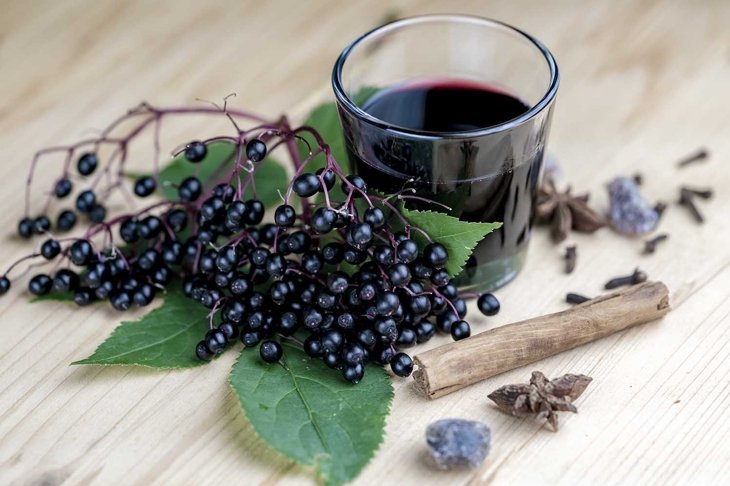
If you’re looking to de-bloat, elderberry tea could provide some help. Studies indicate that elderberry has diuretic effects, helping to rid your body of excess salt and water through increased urination. Check out these warming teas for some blend-your-own comfort including natural diuretics like elderberry.
05
Relieves constipation
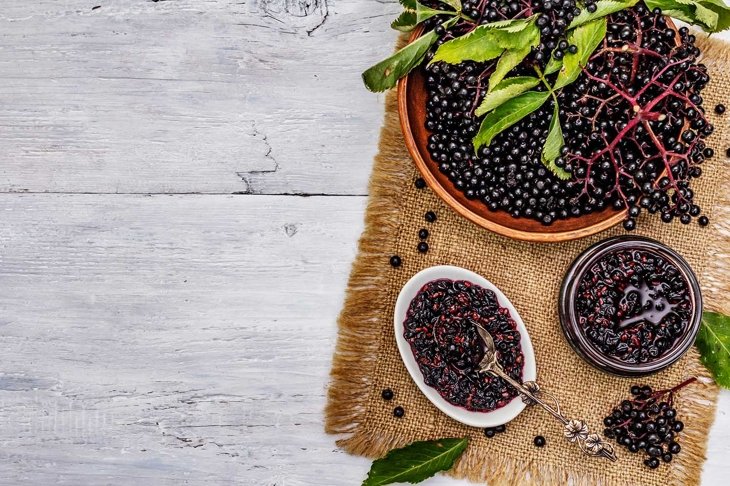
Elderberry has been used for centuries as a natural remedy for constipation, and studies seem to back this use up. Quercetin, contained in elderberries, is both a potent antioxidant flavonoid and an anthraquinone—which provides a laxative effect. Quercetin not only gives the berries their rich pigments, but has also been shown to help chronic constipation by stimulating gastrointestinal movements.
06
Protects heart health
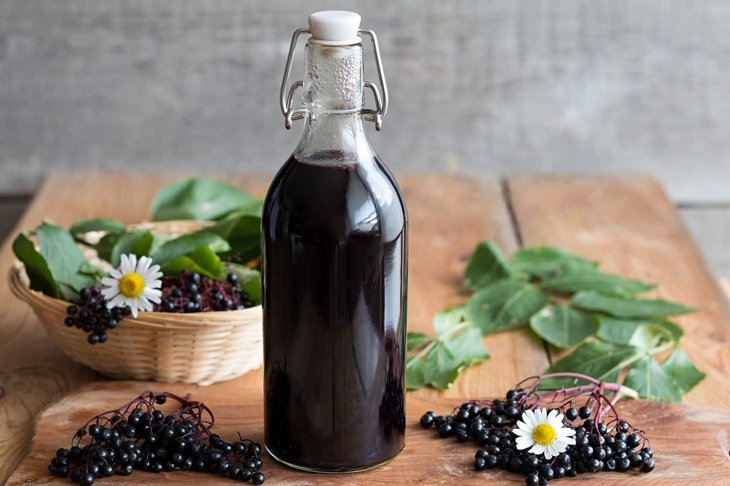
Elderberries could help reduce and prevent cardiovascular disease. Research shows that antioxidants in the berries have been linked to a reduced risk of cardiovascular disease, while a number of studies indicate that the fruit also provides beneficial effects on blood pressure.
Advertisement
07
Reduces stress response
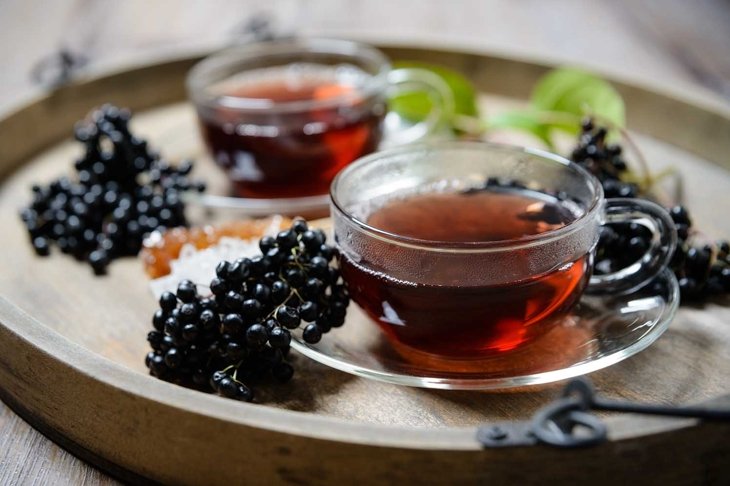
Feeling a little stressed? Elderberries may be able to help. Studies show that elderberries can lessen stress responses. Emotional stress can lead to oxidative stress in the body, and elderberries may be able to help here too. Quercetin contained in elderberries is a particularly powerful reducer of oxidative stress. If you’re in need of a little stress relief, taking a few minutes to sip a calming mug of tea and unwind could be just the help you need, so why not make it elderberry tea and reap the numerous other rewards in the process?
08
Nutrient powerhouse
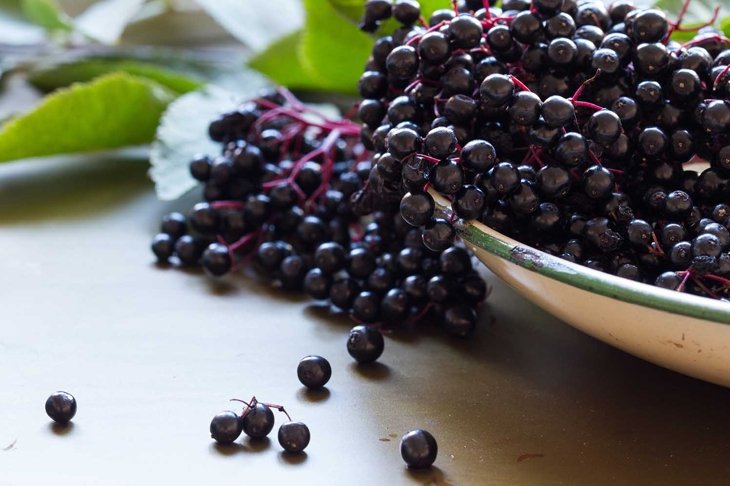
While small, elderberries pack a big nutritional punch. High in vitamin C, elderberries also contain B vitamins, vitamin A, vitamin E, as well as potassium, zinc, iron, calcium, and magnesium. In addition, 100 grams of elderberries offers 2.4 grams of fiber. Elderberries’ polyphenol content, including flavanols, phenolic acids, proanthocyanidins, and anthocyanins, gives the berries antioxidant properties that help fight oxidative stress in your body.
09
From drinks, to spreads, to gummies
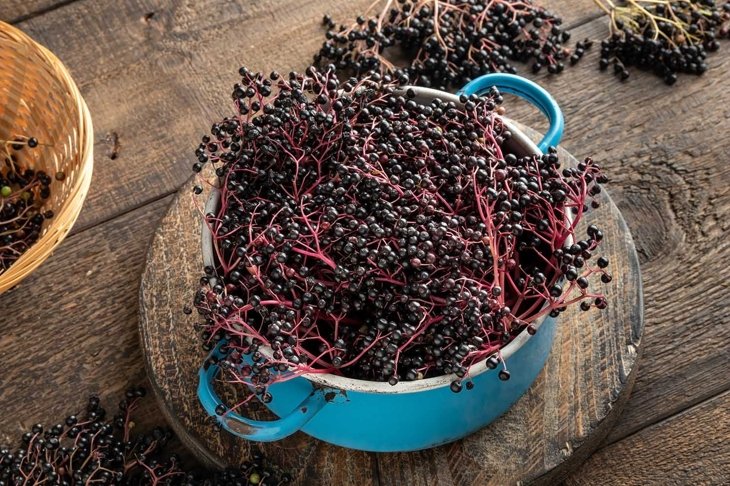
Long used in wines, cordials, baked goods, jams, and jellies, elderberry can also be found in the form of teas, gummies, lozenges, syrup, and capsules. The plethora of ways you can add elderberry to your diet makes it easy and delicious to benefit from the berry’s positive effects. When uncooked, elderberries contain a toxic substance that can cause nausea, vomiting and diarrhea, so any preparation of elderberries you use should be cooked. Commercial preparations of elderberry such as syrups and lozenges don’t contain this substance and are generally recognized as safe for that reason.
Advertisement
10
Cherished member of history
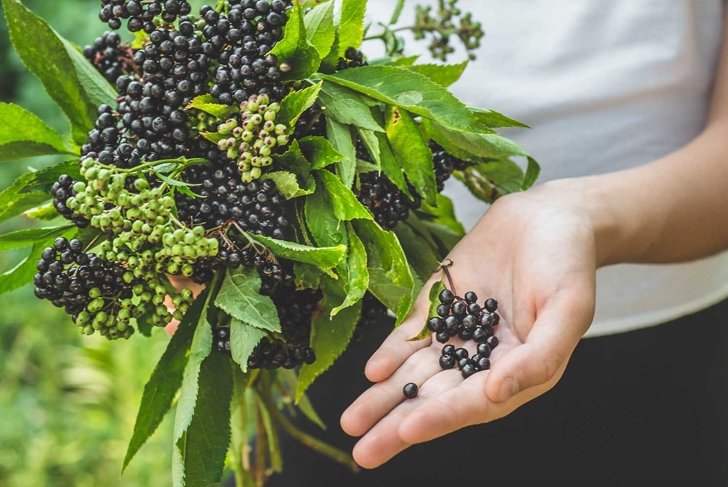
Used for thousands of years, elderberries have a long history in both culinary and medicinal preparations. Archaeologists have found evidence that elderberries were used in the Stone Age and Bronze Age. In ancient Egypt, the elderberry plant was used to improve complexion and to help heal burns. Ancient Greece and Rome also utilized the plant for its healing properties, with Hippocrates recommending the berries for a number of ailments as early as 400 BC.







